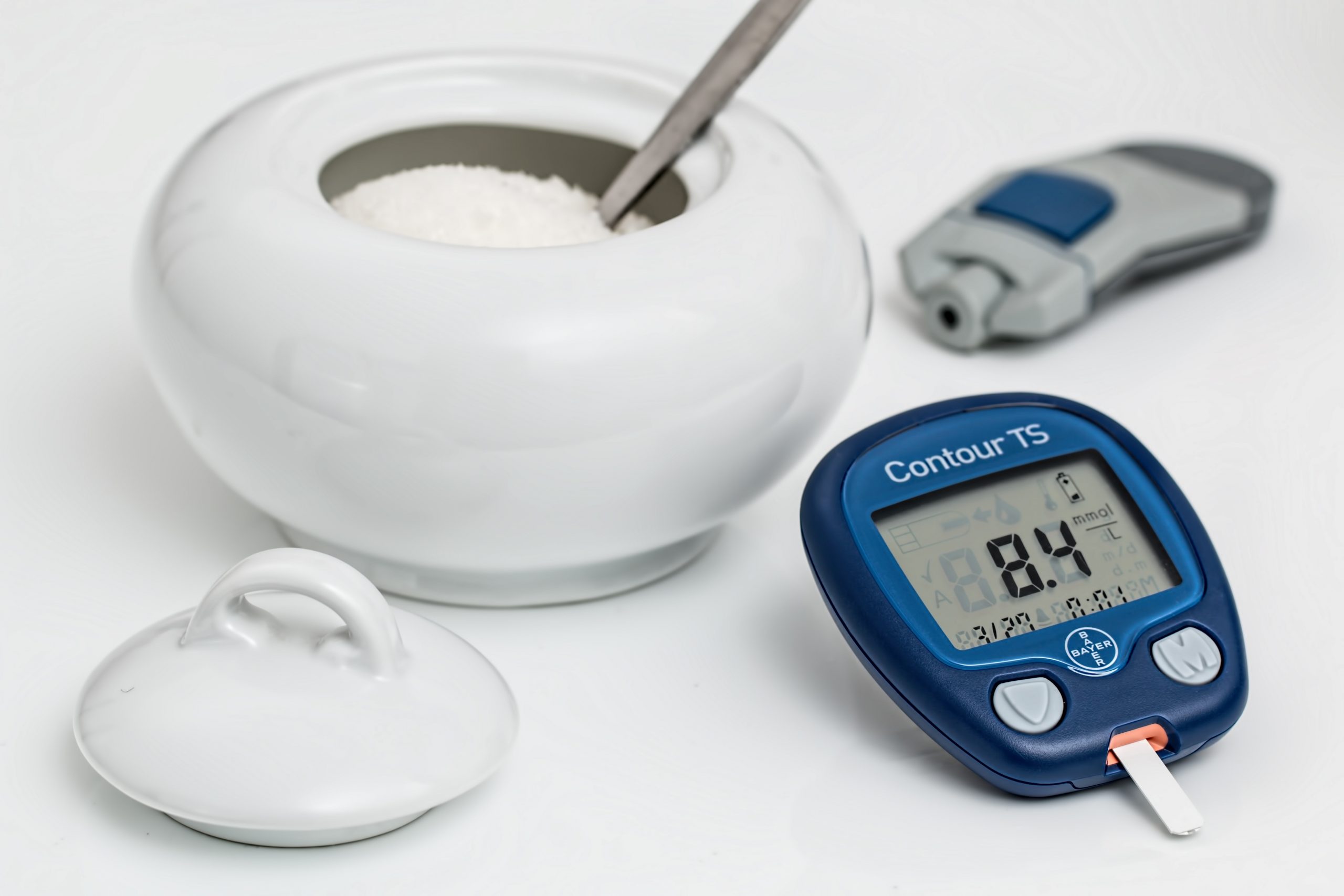
Diabetes is a serious condition that affects an estimated 10% of the population in the United States, and that number is expected to increase over the next few years. Blood sugar problems that have not yet developed into diabetes are even more common, but can often be reversed if caught early enough. The most likely causes of blood sugar imbalances are a poor diet, lack of exercise, and excess weight. Fortunately, these are all things that are in your control, meaning you may be able to greatly lower your risk of developing diabetes and other conditions related to blood sugar imbalances. Let’s take a deeper look at some lifestyle factors that can affect blood sugar, as well as some ways to help balance blood sugar levels.
Poor Diet
The Standard American Diet (SAD) typically consists of foods high in sugar, calories, carbohydrates, and bad fats, and low in fiber, vitamins, minerals, and protein. This diet has been linked to the development of many different health issues like diabetes, heart disease, autoimmune diseases, and certain cancers. A diet high in sugar is especially harmful to someone with a family history of diabetes as they are usually at a higher risk of developing diabetes.
When sugar or simple carbohydrates (like bread, pasta, and grains) are consumed, insulin levels in the body quickly increase to deal with the excess amount of sugar in the blood, but when insulin levels are continually high, the body starts to respond to it less and less. This causes the pancreas to produce more insulin to try to compensate, causing the body to respond less, leading to a vicious cycle. Eventually, the pancreas can no longer keep up and blood sugar levels remain high, which can contribute to the development of type 2 diabetes, and potentially more serious complications like organ damage, decreased vision, and nerve damage.
Excess Weight
Being overweight is another risk factor for diabetes, though it not fully understood how. Some research has shown that fat cells may be more resistant to the effects of insulin than muscle cells are, meaning the less muscle mass and more fat you have, the harder it is for your body to respond to insulin properly. It may also contribute to the development of diabetes through poor lifestyle choices. A person that is overweight likely does not eat a balanced diet or exercise regularly, and they may also have hormonal issues that can increase their risk of developing diabetes and other conditions.
Sedentary Lifestyle
Most Americans spend the majority of their day sitting. Many people have office jobs that are sedentary, and also have habits outside of work like watching tv or playing video games that are sedentary. This lack of exercise is believed to contribute to weaker bones, higher levels of body fat, decreased muscle mass, decreased energy, depression, an increased chance of hormonal imbalances, and an increased risk of blood sugar disorders like diabetes. Exercise has many potential benefits, and just walking for thirty minutes a day is usually enough to see some of these benefits. Exercise can help reduce triglyceride levels and raise HDL (“good” cholesterol) levels, improve quality of sleep, improve mood, improve memory and cognitive function, increase energy levels, and many other potential benefits.
Effects on the Immune System
High blood sugar can also negatively impact the immune system in a few different ways. When blood sugar levels are too high, it can cause the body to release molecules that hinder the body’s natural immune defenses. People who have diabetes may also have nerve damage and poor circulation which can contribute to a weaker immune system. Sugar consumption can affect the performance of white blood cells and increase inflammatory markers in the body, even if you do not yet have high blood sugar levels. Elevated cortisol levels have also been associated with high sugar consumption, which can tax the adrenal glands and further decrease immune system function.
What Can You Do?
One of the best things you can do to decrease your risk of developing diabetes (and for increased health overall) is to cut out processed and sugary foods, and replace them with whole foods like nuts and seeds, grass-fed meats, fruits and vegetables, and good fats like coconut and olive oil. You should also be as active as you can which can mean going to the gym, doing a workout or yoga routine at home, or going for a walk a few times a week. Eating a healthy, balanced diet and exercising regularly may also help you maintain a healthy weight which may further decrease your risk of developing diabetes and other health conditions.
There are also some supplements that may help maintain healthy blood sugar levels. These include:
- Gluco Support – Supplies a powerful mix of nutrients and botanicals that efficiently help support normal glucose metabolism, structure and function of basement membranes such as nerve tissue, and insulin sensitivity.†
- Probio-Ease – This shelf-stable, 50 billion CFU formulation contains a blend of 7 select probiotic species with Sunfiber®, a low-FODMAP certified prebiotic. This formulation provides comprehensive microbiome, immune, and healthy inflammation support in one convenient capsule.†
- Berberine – Belongs to a class of naturally occurring alkaloids found in the roots, rhizomes, and stem bark of a number of plant species. Studies with berberine in people with diabetes show that it exerts multiple beneficial effects on glucose and lipid metabolism.†
- Perfect Plant Protein (Vanilla Bean) – This formulation combines USA-grown, sustainable pea protein with microbiome-nourishing prebiotics and antioxidants. This great-tasting, bioavailable, and easy-to-digest protein formulation is 100% dairy-free and non-GMO.†
You are not doomed to have diabetes just because you have a family history of it, there are things you can do to help decrease your risk. So make good choices about food and exercise, it’s more important than you think!
You can listen to our How Blood Sugar Affects Immunity podcast here. You can also listen to it on our YouTube channel here.

